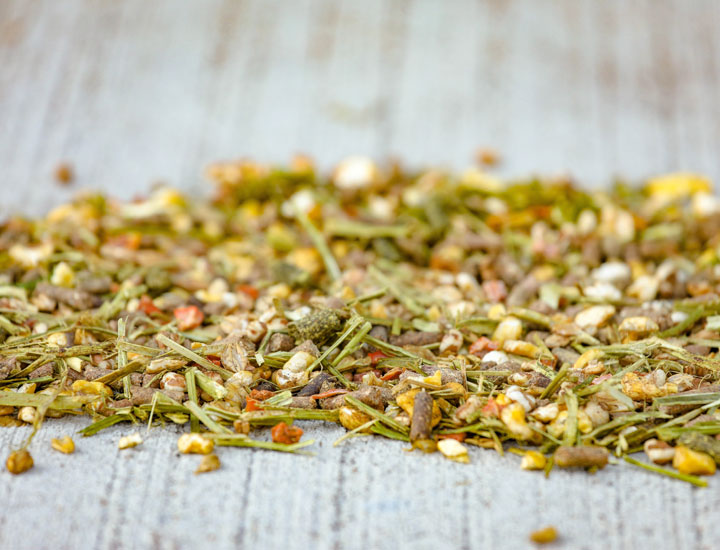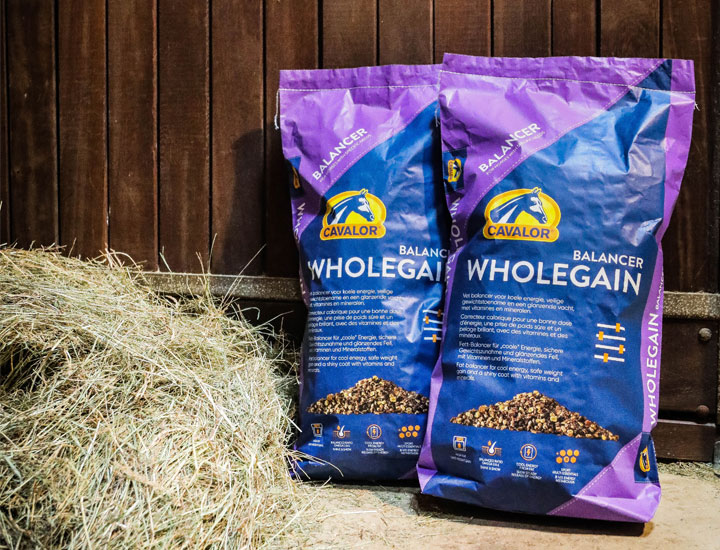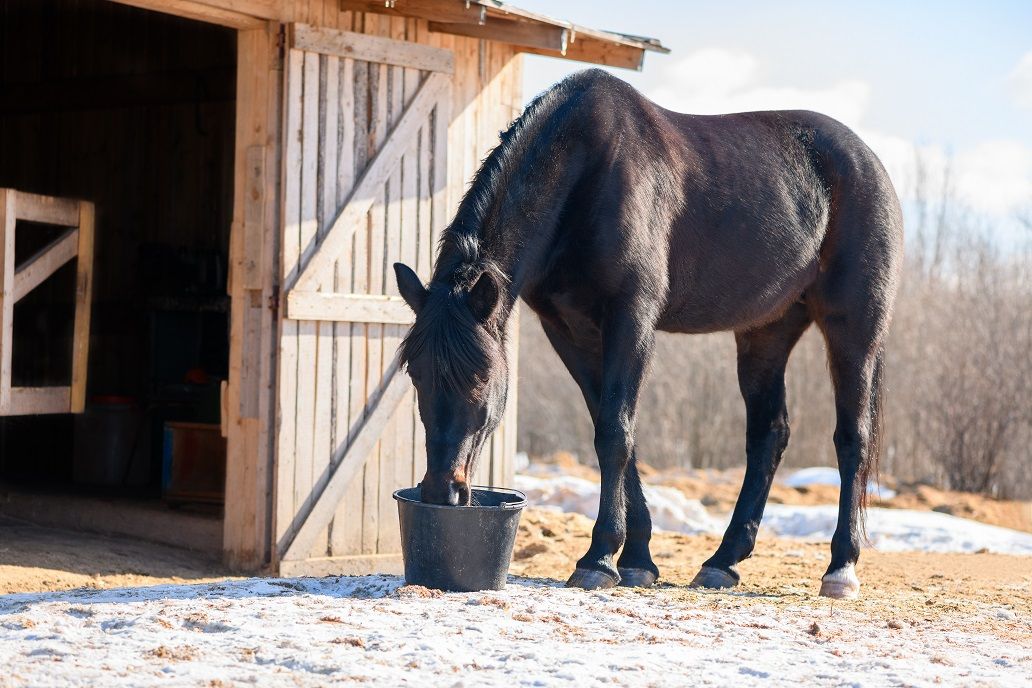There’s no denying it: winter has arrived. Did you know that the winter months can be a real challenge for older horses? Not only does their grass contain fewer nutrients, but they also need extra energy to keep warm in the cold weather. In this blog post, we’ll discuss the older horse in winter and offer a few useful tips.
As mentioned earlier, winter can be a difficult time for maintaining condition in older horses. There are several reasons for this, as we’ll explain.
Challenges for senior horses
As a horse ages, his metabolism slows and becomes less efficient, which reduces nutrient absorption. Worn-down teeth can also make it harder for a senior to eat. And then there is herd hierarchy. The less muscular the horse, the lower its ranking in the herd. This can mean that the older horse has less access to feed. When temperatures fall, a horse has to keep itself warm. One of the ways he does this is by eating. The harder it is to eat, the harder time the horse will have keeping warm.
Fit in summer, trouble in winter
It’s commonly known that older horses are fitter and in better condition in summer. This is because pasture grass is rich in beneficial nutrients. And the warmer weather means that the horse spends less energy keeping warm. The problems start in winter. Fortunately, there are many things you can do to keep your horse fit through the winter.
Winter coat production starts as soon as the days begin to get shorter
From summer coat to winter coat
Did you know that a horse starts to grow his winter coat as soon as the days begin to get shorter? The horse loses its summer coat in preparation for winter. Although it is often assumed that the change from a winter coat to a summer coat is more taxing, the opposite is true. Moulting in general costs energy, whether the horse is shedding his winter coat for a summer coat, or vice versa. Shedding the winter coat is much more noticeable, as the horse is literally covered in tufts of long, loose hair.
When to start supplements
Feeding supplements is one way to help your older horse through the winter. You can actually start feeding supplements as soon as the grass stops growing. Want to read more about grass? We have an interesting article for you here. You might also consider rugging your horse on cold, wintry days. This will make it easier for the horse to maintain its body temperature. Also have your senior horse’s teeth checked regularly. Naturally, each horse is different. Robust breeds will have less trouble getting through the winter, as they need less energy.


In practice
Tom Versprille, sales manager at Cavalor, has a senior horse who has trouble keeping in good condition in winter. Tom his wife Marieke Smallegange, who is also a vet, created a ration that works for their senior horse.
With Wholegain we saw quick results
Marieke: “’We have an older English thoroughbred. In addition to sufficient roughage, we give her a basic ration of Cavalor Strucomix Senior. This feed is formulated especially for older horses with poorer teeth. The cereals and proteins in Strucomix Senior are easily digestible and quickly absorbed. She always loses weight in winter, which is why we recently started feeding her Cavalor WholeGain. This ensures safe weight gain and we saw quick results. I used to try various things, like sunflower oil on concentrate feed. I always found it a hassle to prepare, and many horses don’t like the taste. WholeGain gives my senior mare the extra fats she needs to stay in good shape through the winter!”
She is also outside both day and night. If you rest, you rust! This applies to humans but it is also true for horses. Regular exercise will keep your horse physically and mentally fit. Retirement for a horse, as far as I am concerned, means training that’s adjusted to keep your senior horse happy.


